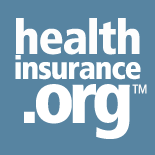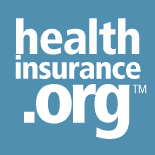House|Senate
116th Congress, Vote 196; House of Representatives #986
Protecting Americans with Preexisting Conditions Act of 2019
Official Title: To provide that certain guidance related to waivers for State innovation under the Patient Protection and Affordable Care Act shall have no force or effect.
H.R. 986: Protecting Americans with Preexisting Conditions Act of 2019
Passed by the House May 9, 2019, 230-183 (17 abstaining, 1 present).
Synopsis: In 2018, the Trump Administration relaxed the rules that apply to 1332 waivers. H.R. 986 is a one-page bill that would reverse the Trump Administration's guidance and prevent similar guidance from being issued in the future.
Background
The 1332 waivers (developed under Section 1332 of the ACA) give states the opportunity to be innovative in their approach to health care reform by waiving some aspects of the ACA (although of the ACA (although some provisions cannot be waived). But the law included some very specific guardrails, noting that 1332 waivers could only be approved if the state's approach would result in coverage that is at least as comprehensive and affordable as it would be without the waiver, would cover at least the same number of people, and would not increase the federal deficit. And the Obama Administration issued guidance in 2015 that further clarified how 1332 waivers could be used, taking a fairly restrictive approach (waivers have to essentially be in line with the spirit of the ACA, as opposed to seeking out loopholes to avoid ACA provisions).
In October 2018, the Trump Administration issued new guidance for 1332 waivers, which replaces the earlier guidance issued by the Obama Administration. While the 1332 guardrails technically have to remain in place (as they're part of the ACA itself, and would thus require legislation to change or eliminate them), the Trump Administration is taking a much more relaxed approach to interpreting them. The Administration's approach was further details in a waiver concepts discussion paper that was published in November 2018, outlining four waiver ideas that states could consider.
Under the Trump Administration's guidance, new metrics can be used to determine whether a state's proposal is in compliance with the 1332 waiver guardrails:
- Instead of counting how many people actually have affordable, comprehensive coverage, the Administration will consider access to coverage. But a person who chooses to forego that access and instead purchase a lesser-quality plan would still be counted as having access to coverage.
- The previous focus on a 1332 waiver's impact on vulnerable populations (clarified in the 2015 guidance) has been removed. So even if a waiver proposal would have a deleterious effect on coverage for vulnerable populations (elderly, low-income, chronically ill, etc.), it could still be approved if the state can demonstrate that it would improve access to comprehensive, affordable coverage for the state as a whole.
- The definition of "coverage" under a 1332 waiver has been expanded; it no longer has to be minimum essential coverage. So if people gain coverage under short-term health insurance plans, for example, they're counted as "covered" under the Trump Administration's approach to 1332 waivers. And in the waiver concepts paper that the Administration subsequently published, they highlighted the fact that states could propose waivers based on the idea of allowing ACA premium subsidies to be used to purchase short-term health insurance plans and association health plan coverage.
- Instead of requiring a state to enact legislation to support a 1332 waiver proposal, the new guidance allows, in some circumstances, a waiver proposal to be drafted in accordance with state regulations or an executive action. In other words, state lawmakers don't necessarily have to sign off on the 1332 waiver proposal and it can still gain CMS approval.
These ideas have been widely panned by health policy experts, although they've also been heralded by ACA opponents.
CMS has already approved eight 1332 waivers, although all but one have been to establish reinsurance programs (Hawaii's waiver, which was the first one approved by CMS, allowed the state to end its SHOP exchange for small businesses). CMS Administrator, Seema Verma, spoke at a conference in April to encourage states to submit 1332 waiver proposals under the new guidelines, although none have done so thus far.
Why supporters are in favor of this bill
Supporters of H.R. 986 are opposed to the Trump Administration's relaxed guidelines for 1332 waivers and generally want to ensure that 1332 waivers are implemented in line with the overarching goals of the ACA. They support H.R. 986 for a variety of reasons:
- The legislation would render the relaxed 1332 waiver guidelines null and void, and would prevent similar guidelines from being issued in the future.
- In general, the Trump Administration's 1332 waiver guidance is seen as a way to allow states to roll back some of the ACA's consumer protections via regulation and executive action, since federal legislation to do so was unsuccessful.
- There are concerns that more people would end up being covered by sub-par health coverage (such as short-term health plans), although they might not realize it's sub-par until if and when they have a need for extensive medical care.
- There are concerns that the risk pool for ACA-compliant coverage could be jeopardized if healthy people leave that pool in favor of waiver-approved plans "that best meet the needs" of state residents. The whole point of health insurance is that nobody actually knows what their needs will be next week or next year. And the best way to maintain a solid insurance pool that adequately covers everyone is to ensure that as many people as possible - including healthy people - are in the pool.
- There are concerns that the Trump Administration improperly circumvented the normal rule-making process in issuing the 1332 waiver guidelines. So H.R. 986 would undo what some consider to be improperly issued guidance.
Why opponents are opposed to this bill
Supporters of the relaxed 1332 waiver guidelines are opposed to H.R.986, as they do not want to return to the more stringent rules for 1332 waivers. They are opposed to H.R.986 for a variety of reasons:
- The Trump Administration's 1332 waiver guidance gives more control to the states, instead of concentrating regulatory authority at the federal level. This state-centered approach is particularly favored by conservatives, who want to see health insurance regulated at the state - rather than federal - level. H.R. 986 would roll back the new authority that the Trump Administration has given to states.
- H.R. 986 would make it harder to states to use 1332 waivers as an end-run around the ACA. Opponents of the ACA believe that the ACA, including 1332 waivers, is too narrow in terms of what it allows states to do, and takes too much of a one-size-fits-all approach . They would prefer to keep the guidance that the Trump Administration has issued, and do not want to return to the stricter guidelines that were previously in place.
- H.R. 986 would eliminate the possibility for states to garner federal pass-through funding (via a 1332 waiver) that could be used to expand access to non-ACA-compliant policies such as short-term health plans. Proponents of short-term health plans believe that these inexpensive plans are an adequate solution for healthy people who might not otherwise be able to afford comprehensive coverage, and they would like to see states allowed to use premium subsidies to make these plans even more affordable.
- The relaxed 1332 guidance is seen as a way to "mitigate the damage done by Obamacare." As such, opponents of the ACA are generally also opposed to H.R. 986, since it would do away with the relaxed waiver guidance.
| 05/09/2019 | Status: House passed |
More: select a member to see his or her other key health care votes.
| Not Voting (17) | ||
|---|---|---|
| D | Karen Bass | CA |
| D | Tony Cárdenas | CA |
| R | Devin Nunes | CA |
| D | Eric Swalwell | CA |
| R | Francis Rooney | FL |
| D | Tulsi Gabbard | HI |
| D | Bobby Rush | IL |
| R | Ralph Abraham | LA |
| D | Cedric Richmond | LA |
| D | Elijah Cummings | MD |
| R | Tom Emmer | MN |
| R | Mark Walker | NC |
| D | Tim Ryan | OH |
| R | Brad Wenstrup | OH |
| R | Pete Olson | TX |
| R | John Ratcliffe | TX |
| R | Rob Bishop | UT |
| Present (1) | ||
|---|---|---|
| R | Bill Flores | TX |



